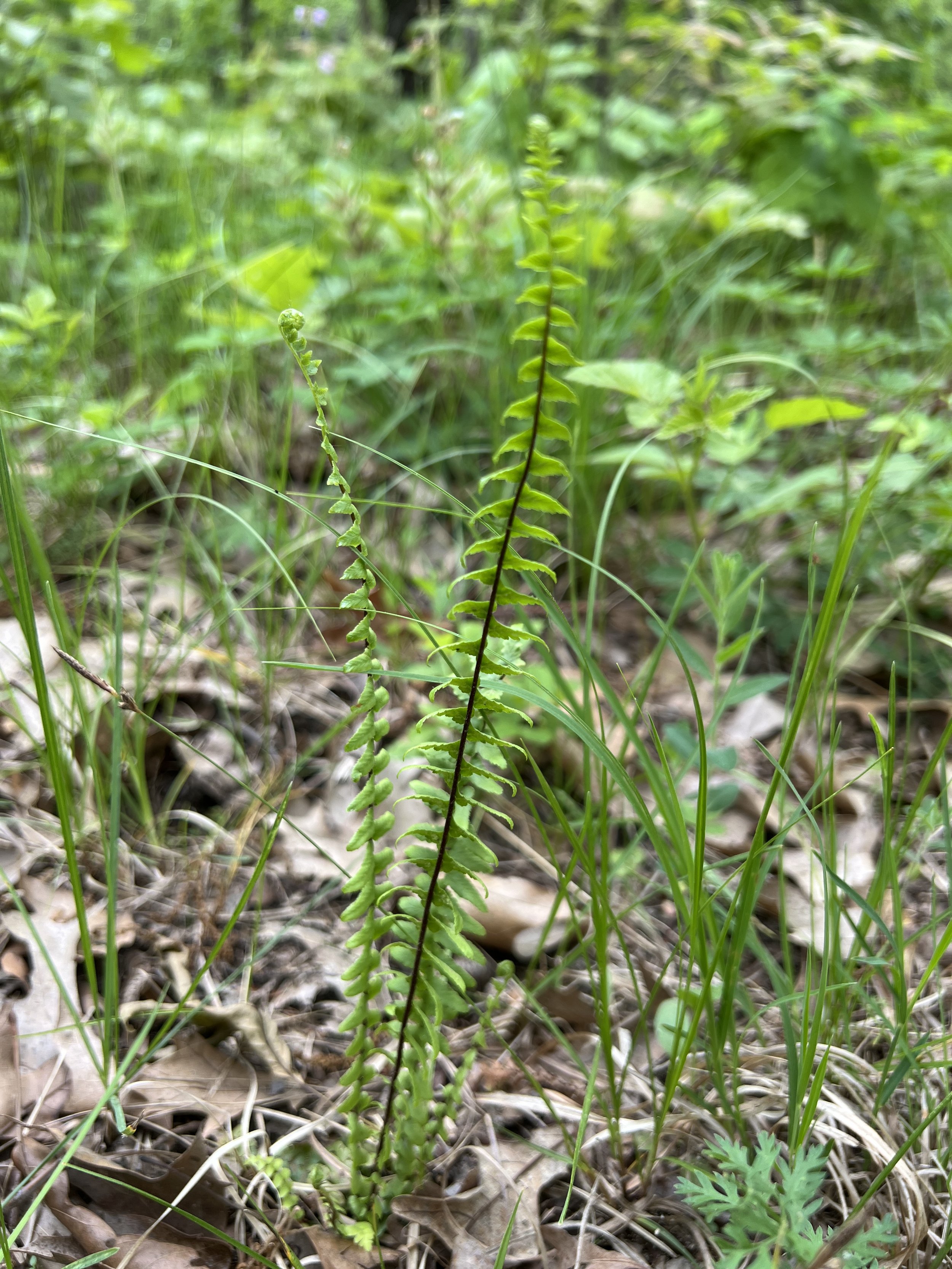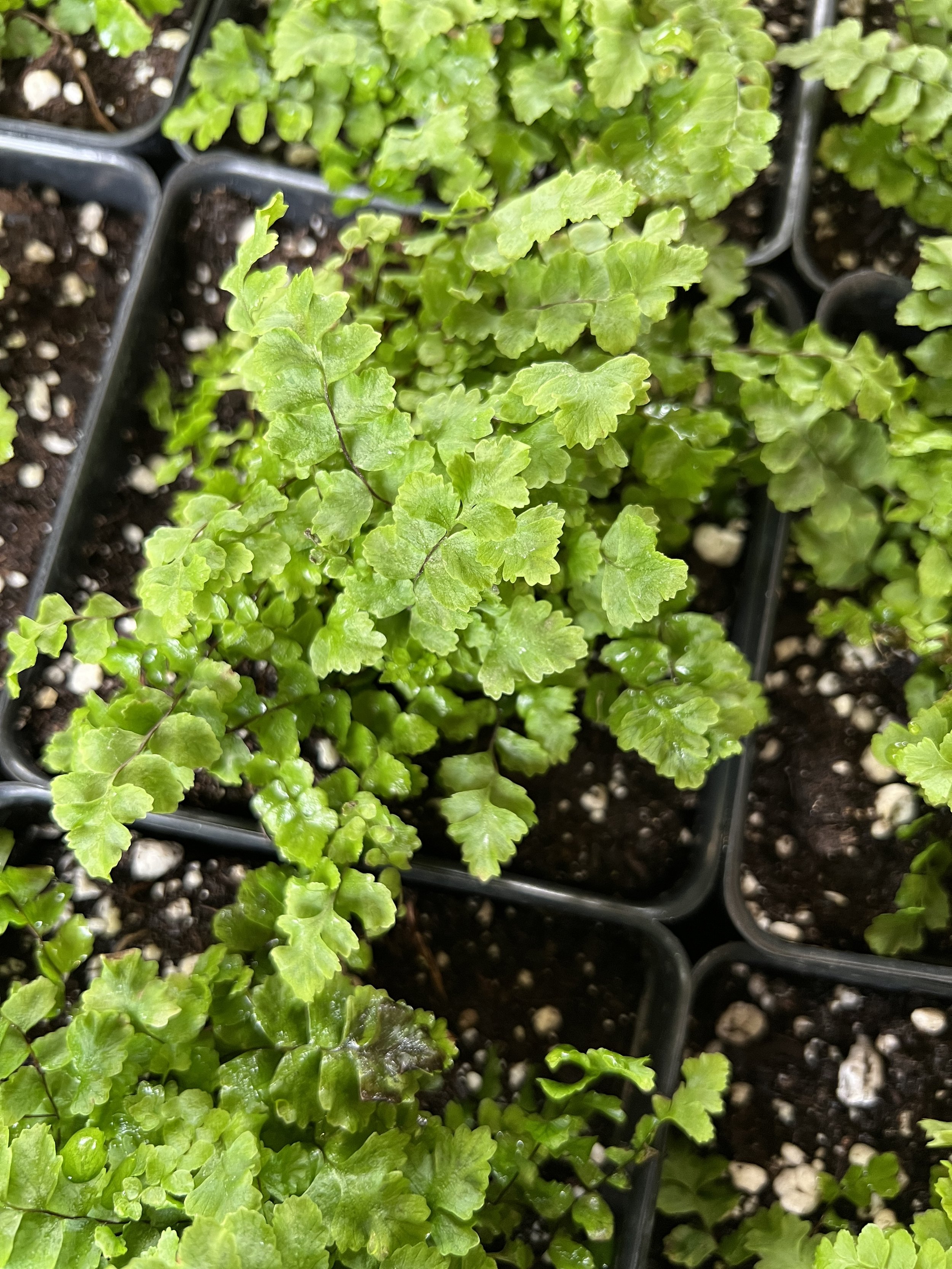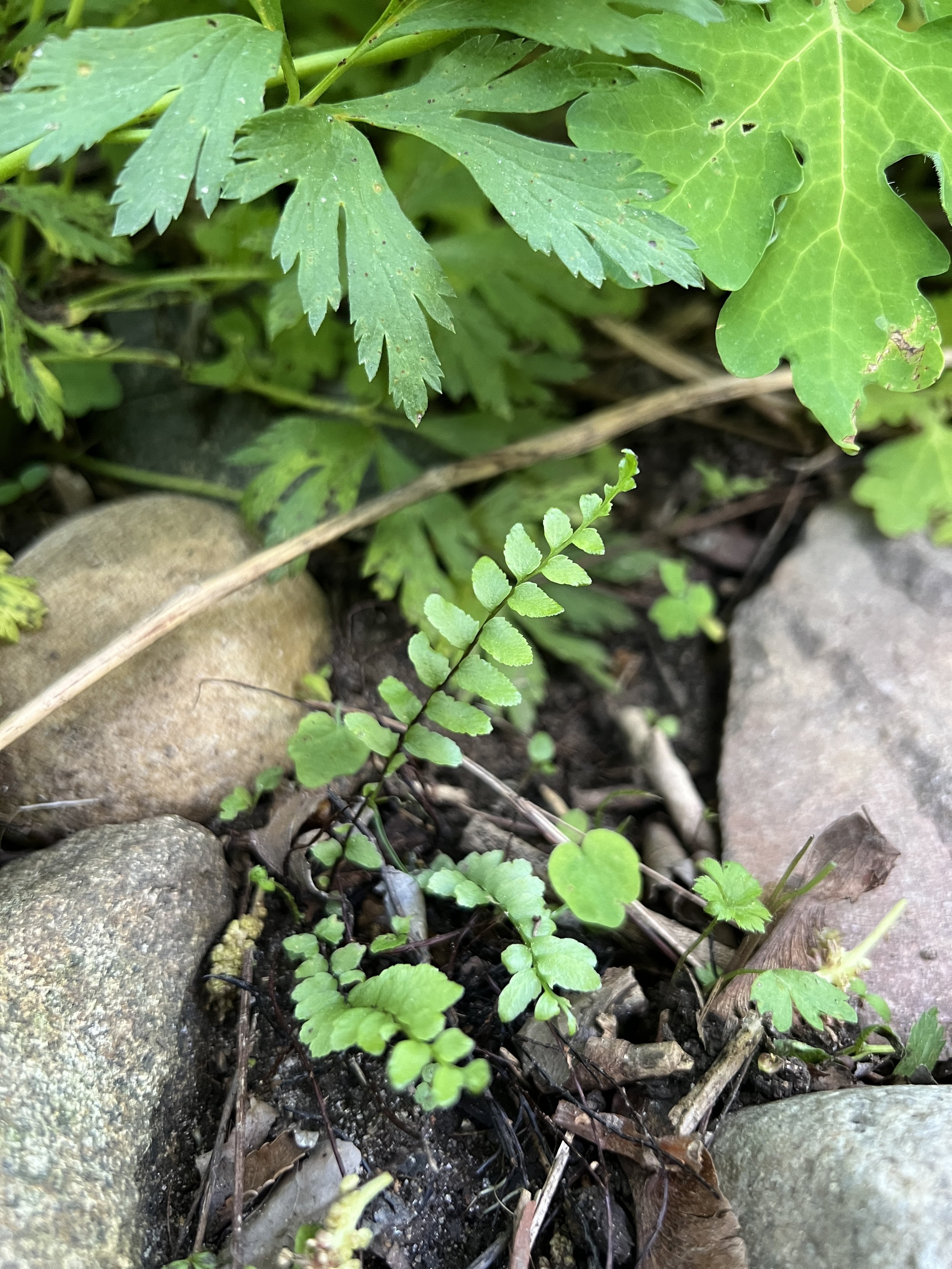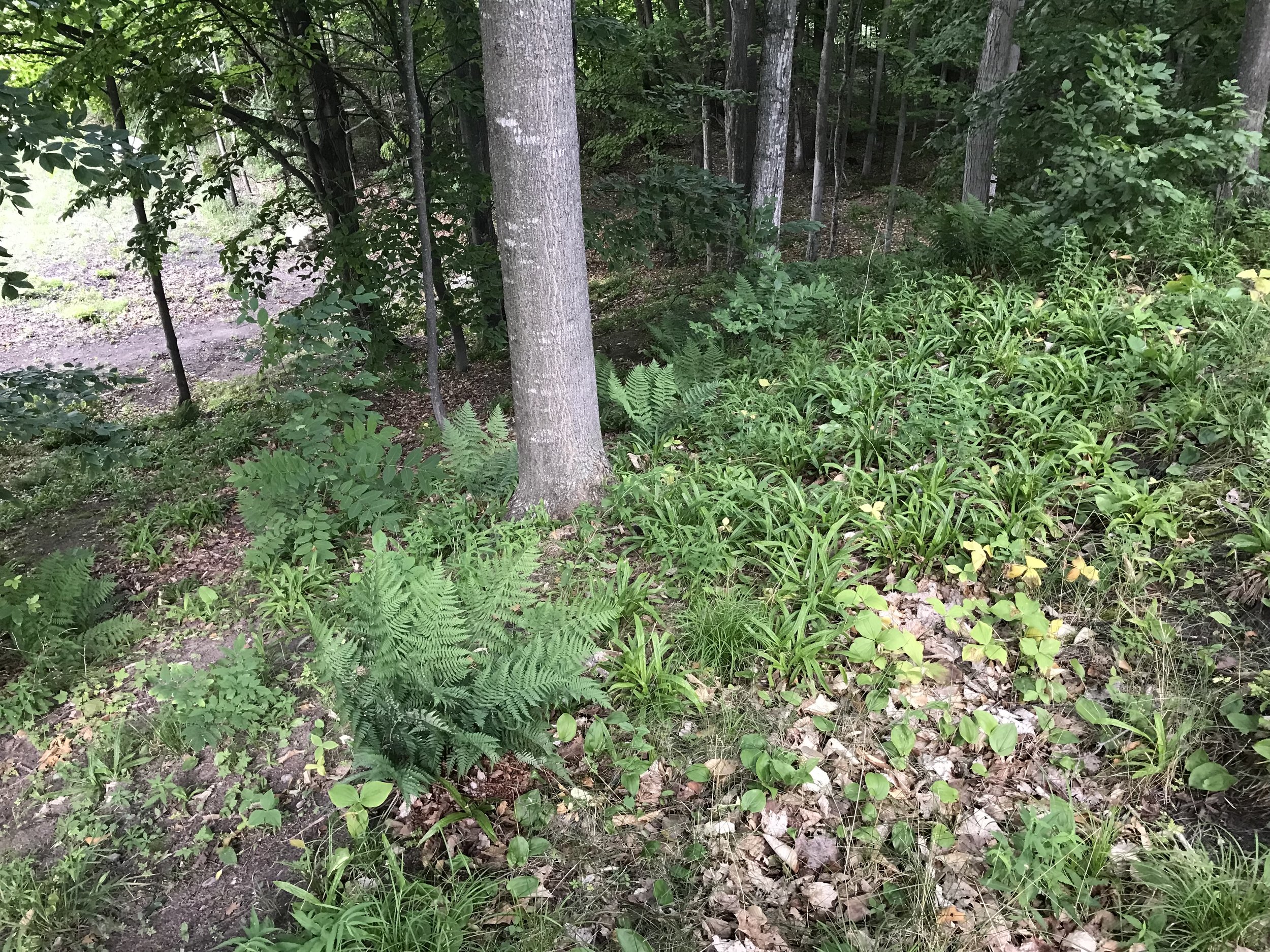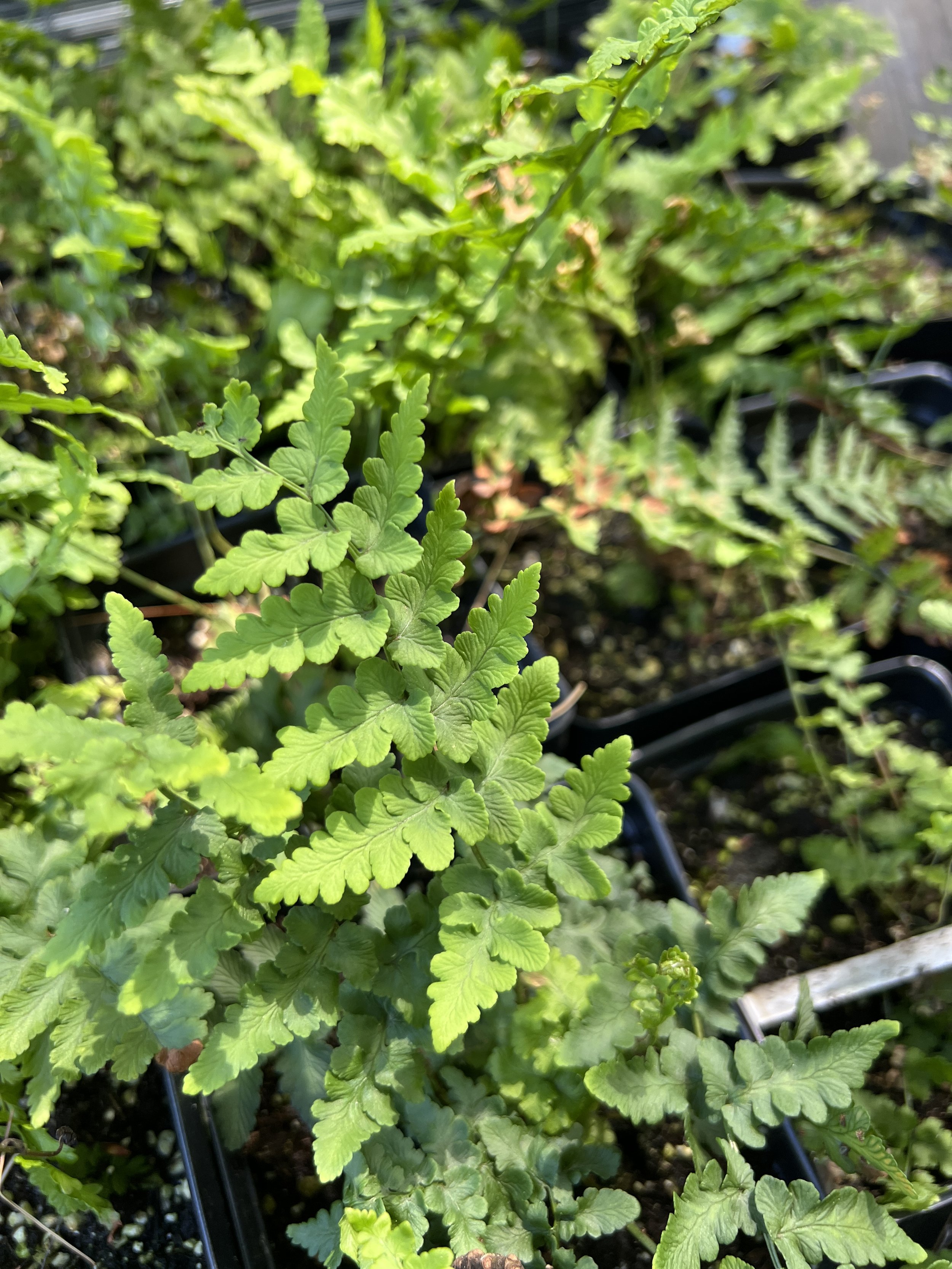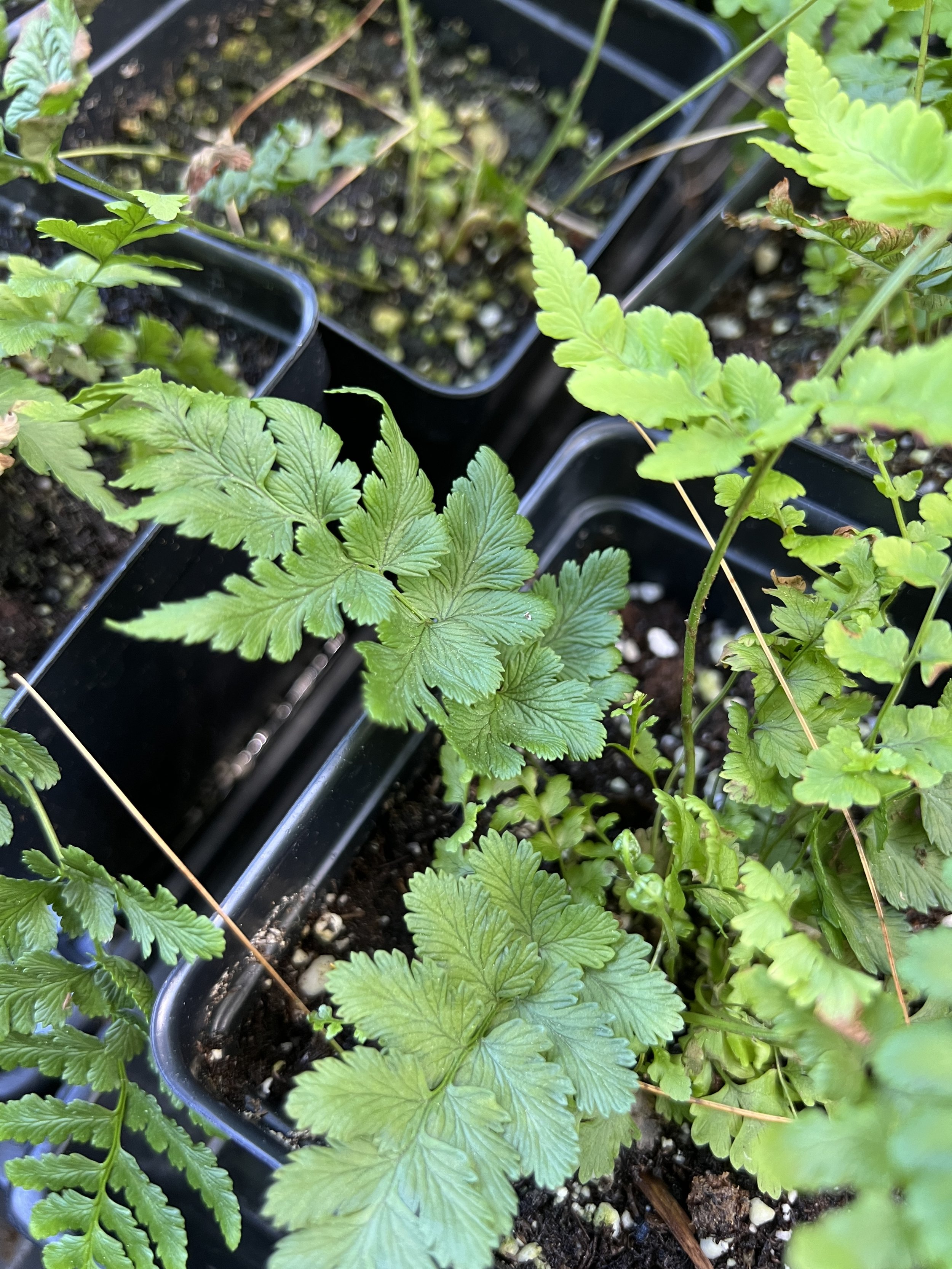 Image 1 of 7
Image 1 of 7

 Image 2 of 7
Image 2 of 7

 Image 3 of 7
Image 3 of 7

 Image 4 of 7
Image 4 of 7

 Image 5 of 7
Image 5 of 7

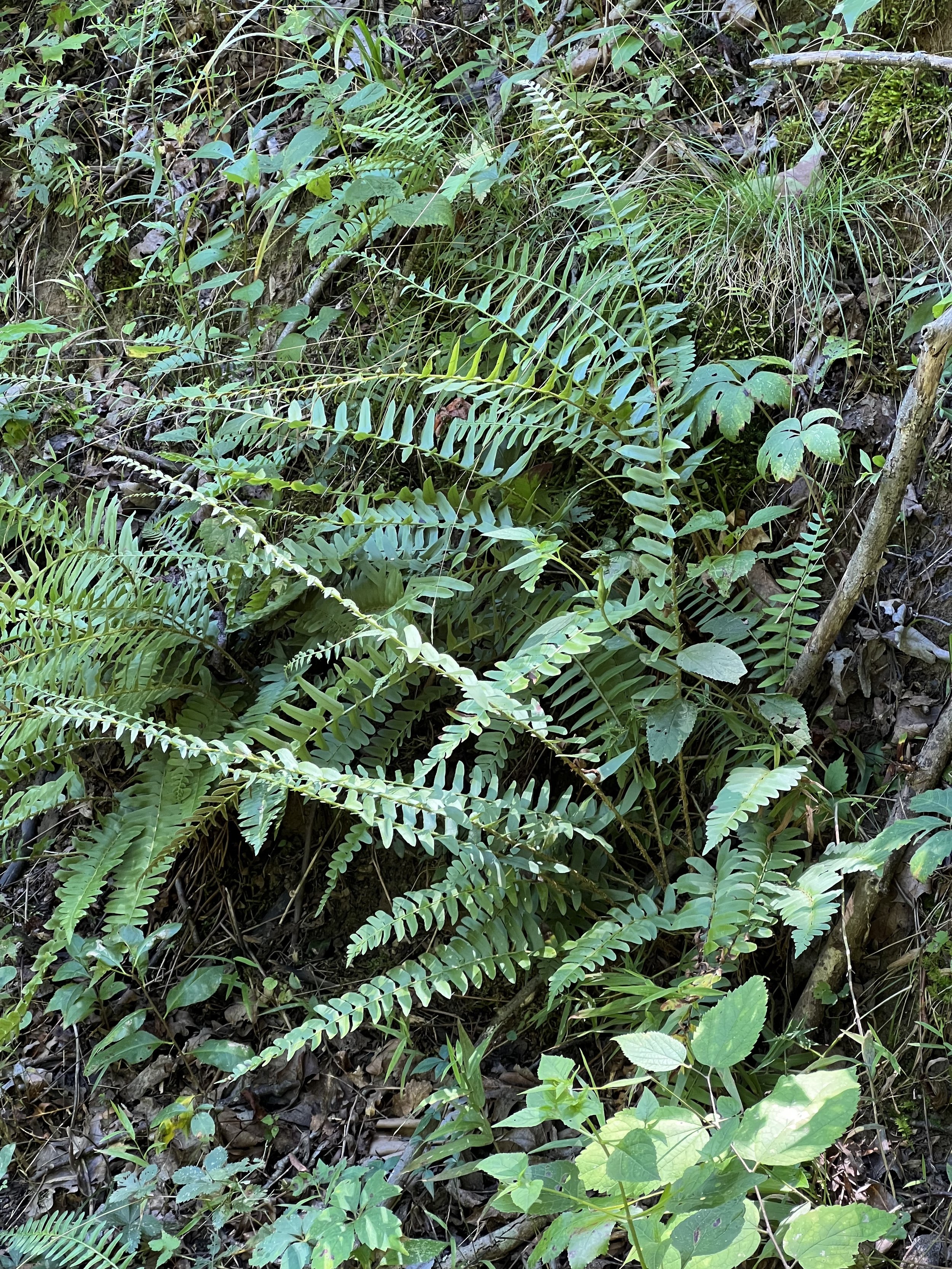 Image 6 of 7
Image 6 of 7

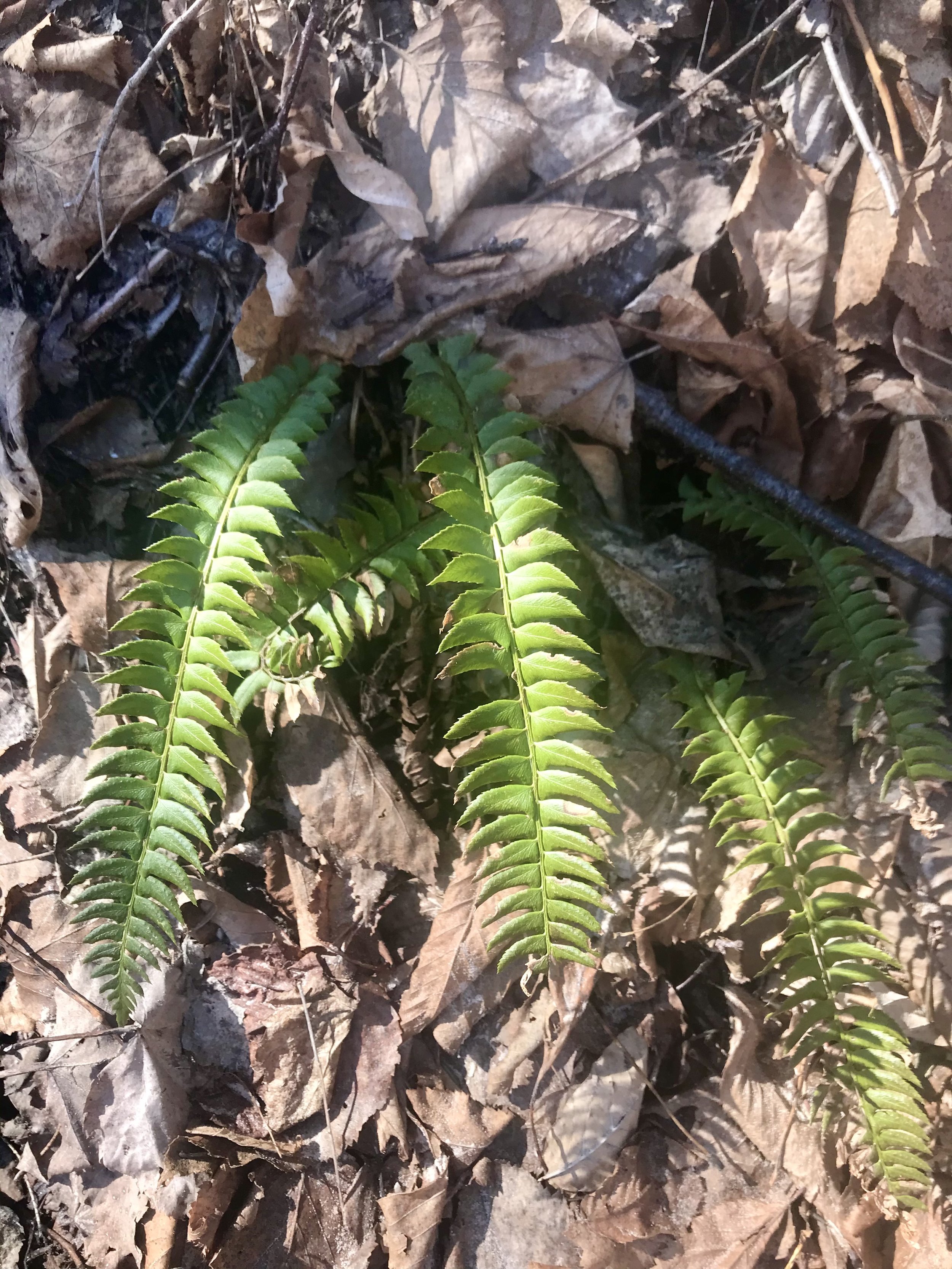 Image 7 of 7
Image 7 of 7

Christmas Fern (Polystichum acrostichoides)
Christmas ferns are evergreen and naturally occur on shady slopes in the southern half of the lower peninsula in Michigan. For this reason, heavy clay or consistently wet soil should be avoided.
When the fiddleheads arise in the spring, they are covered with silver scales. Later, the entire stipe (stem) of fronds are covered with brown scales that are denser at the bottom.
This fern grows from one to three feet high. The leaves are once compound and lance-shaped. The leaflets (pinnae) are alternate and the base near the stem has a pointed lobe.
Fertile fronds have sori (groups of spores) only on the upper portion of the fronds. Fertile fronds usually stand straight up and non-fertile fronds are arching.
If you have a steep slope and are worried about erosion, this might be the plant for you. After first frost, the leaves lay flat and hold the fallen leaves in place.
Christmas Fern (Polystichum acrostichoides)
Michigan Flora reference page for state distribution: Christmas Fern
height: 1-3 feet
soil: well-drained, dry-moist
sun: shade
plant spacing: 15”
life cycle: perennial
family: Dryopteridaceae
Christmas ferns are evergreen and naturally occur on shady slopes in the southern half of the lower peninsula in Michigan. For this reason, heavy clay or consistently wet soil should be avoided.
When the fiddleheads arise in the spring, they are covered with silver scales. Later, the entire stipe (stem) of fronds are covered with brown scales that are denser at the bottom.
This fern grows from one to three feet high. The leaves are once compound and lance-shaped. The leaflets (pinnae) are alternate and the base near the stem has a pointed lobe.
Fertile fronds have sori (groups of spores) only on the upper portion of the fronds. Fertile fronds usually stand straight up and non-fertile fronds are arching.
If you have a steep slope and are worried about erosion, this might be the plant for you. After first frost, the leaves lay flat and hold the fallen leaves in place.
Christmas Fern (Polystichum acrostichoides)
Michigan Flora reference page for state distribution: Christmas Fern
height: 1-3 feet
soil: well-drained, dry-moist
sun: shade
plant spacing: 15”
life cycle: perennial
family: Dryopteridaceae
Christmas ferns are evergreen and naturally occur on shady slopes in the southern half of the lower peninsula in Michigan. For this reason, heavy clay or consistently wet soil should be avoided.
When the fiddleheads arise in the spring, they are covered with silver scales. Later, the entire stipe (stem) of fronds are covered with brown scales that are denser at the bottom.
This fern grows from one to three feet high. The leaves are once compound and lance-shaped. The leaflets (pinnae) are alternate and the base near the stem has a pointed lobe.
Fertile fronds have sori (groups of spores) only on the upper portion of the fronds. Fertile fronds usually stand straight up and non-fertile fronds are arching.
If you have a steep slope and are worried about erosion, this might be the plant for you. After first frost, the leaves lay flat and hold the fallen leaves in place.
Christmas Fern (Polystichum acrostichoides)
Michigan Flora reference page for state distribution: Christmas Fern
height: 1-3 feet
soil: well-drained, dry-moist
sun: shade
plant spacing: 15”
life cycle: perennial
family: Dryopteridaceae
The closest look-a-like fern to Christmas Fern in Michigan is Ebony Spleenwort, which we also sell. However, Christmas Fern is much larger fern and the stipes are not black.
